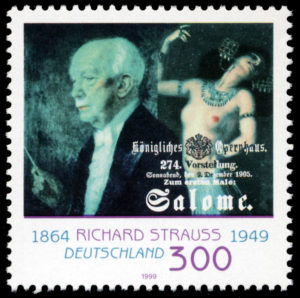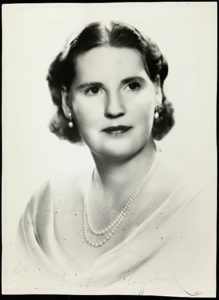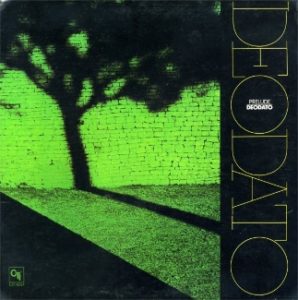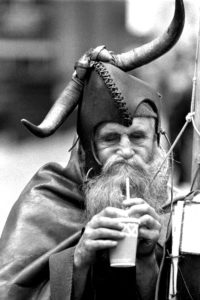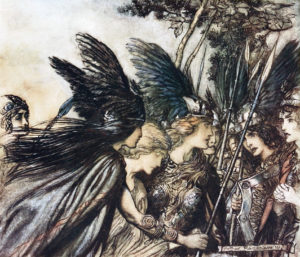River City Limits presents:
RCL 1-7-23 – Jay Smack Host
smack River City Limits January 7th, 2023
Posted In: Blogging, Local, Music, Music Shows
End Of The Century presents:
R.I.P. Killer

DJbob End Of The Century December 24th, 2022
Posted In: Blogging, Music, Music Shows, Volunteering
Cause and Effect presents:
In The Spirit With Jessye Norman [1945-2019]

DJbob Cause and Effect December 24th, 2022
Posted In: Blogging, Music, Music Shows
River City Limits presents:
RCL 12-3-22 Jay Smack Host

smack River City Limits December 3rd, 2022
Posted In: Blogging, Local, Music, Music Shows
Tags: rvamusic
Cause and Effect presents:
The Late Romanticism of Richard Strauss [1864-1949]
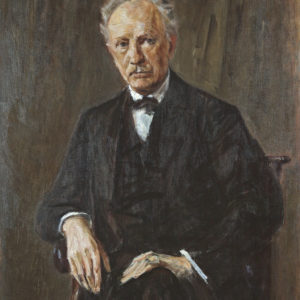
[1918 Portrait of Strauss by Max Liebermann]
Richard Strauss spent nearly eighty years composing music, and with great fame and success. He also toured the world as a conductor. His reputation as a composer relies almost entirely on his twelve tone poems and about as many operas, as well as his late masterpiece for soprano and orchestra, Vier letzte Lieder (Four Last Songs). His orchestration was virtuosic, and he absolutely loved writing music for the female voice. Strauss is often praised for his ability to create operatic heroines, and his operas Salome, Elektra, Der Rosenkavalier, and Die Frau Ohne Schatten (The Woman Without A Shadow) are a testament to his love for women’s voices.
[German postage stamp, 1999]
On discovering the symphonic poems of Franz Liszt:
“New ideas have to find new forms – this basic principle of Liszt’s symphonic works, in which the poetic idea was actually also the formative element, became from then on the guide for my own symphonic work … ”
[Kirsten Flagstad, who sang the posthumous premiere of Strauss’s Four Last Songs in 1950]
The following poem is the the sung text of the fourth of the Four Last Songs:
“Im Abendrot” (“At sunset”) (Text: Joseph von Eichendorff)
Wir sind durch Not und Freude
gegangen Hand in Hand;
vom Wandern ruhen wir beide
nun überm stillen Land.
Rings sich die Täler neigen,
es dunkelt schon die Luft.
Zwei Lerchen nur noch steigen
nachträumend in den Duft.
Tritt her und lass sie schwirren,
bald ist es Schlafenszeit.
Dass wir uns nicht verirren
in dieser Einsamkeit.
O weiter, stiller Friede!
So tief im Abendrot.
Wie sind wir wandermüde –
Ist dies etwa der Tod?
(Through sorrow and joy
we have gone hand in hand;
we are both at rest from our wanderings
now above the quiet land.
Around us, the valleys bow,
the air already darkens.
Only two larks soar
musingly into the haze.
Come close, and let them flutter,
soon it will be time to sleep
so that we don’t get lost
in this solitude.
O vast, tranquil peace,
so deep in the afterglow!
How weary we are of wandering –
Is this perhaps death?)
[Cover art from Deodato’s 1973 album Prelude, which features a jazz rendition of Strauss’s Also Sprach Zarathustra, also featured in the 1980 film Being There.]
In March 1933, when Strauss was 68, Adolf Hitler and the Nazi Party rose to power. Strauss never joined the Nazi Party, and studiously avoided Nazi forms of greeting. For reasons of expediency, however, he was initially drawn into cooperating with the early Nazi regime in the hope that Hitler—an ardent Wagnerian and music lover who had admired Strauss’s work since viewing Salome in 1907—would promote German art and culture. Strauss’s need to protect his Jewish daughter-in-law and Jewish grandchildren also motivated his behavior, in addition to his determination to preserve and conduct the music of banned composers such as Gustav Mahler and Claude Debussy. Toward the end of the war, a few days after finishing his study for solo strings Metamorphosen in March 1945, Strauss wrote in his diary:
“The most terrible period of human history is at an end, the twelve year reign of bestiality, ignorance and anti-culture under the greatest criminals, during which Germany’s 2,000 years of cultural evolution met its doom.”
DJbob Cause and Effect November 12th, 2022
Posted In: Blogging, Music, Music Shows, Volunteering, Website
River City Limits presents:
RCL 10-8-22 Jay Smack
smack River City Limits October 14th, 2022
Posted In: Blogging, Local, Music, Music Shows
Secret Bonus Level presents:
Great Musical Weirdos of the 20th Century
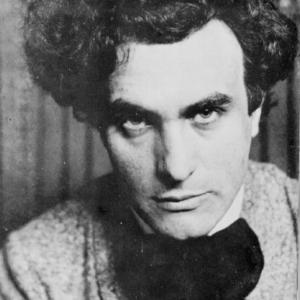
[Edgard Varèse]
Music from Alban Berg, György Ligeti, Olivier Messiaen, Carl Stalling, and others…
DJbob Secret Bonus Level October 6th, 2022
Posted In: Blogging, Music, Music Shows, Volunteering, Website
River City Limits presents:
Mackenzie Roark Interview – Jay Smack Host
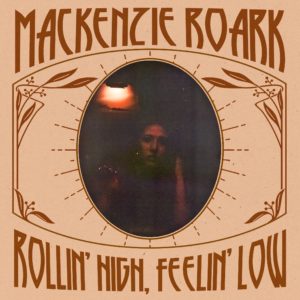
Mackenzie Roark talks about the upcoming release of her new record “Rollin’ High, Feelin’ Low” on October 18 on Vocal Rest Records. The album release show is October 22 at Get Tight Lounge.
Also new music from Merciful Zero, B4NK M4CHIN3, Lean Year, Drook, Ohbliv, Piranha Rama and more.
smack River City Limits October 3rd, 2022
Posted In: Blogging, Local, Music, Music Shows
Cause and Effect presents:
Das Musikdrama von Richard Wagner [1813-1883]
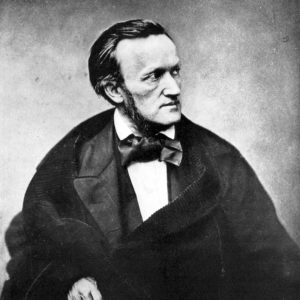
“Wagner’s music is better than it sounds.” -Mark Twain
The influence of German composer Richard Wagner (1813-1883) on our world is too vast to fully assess. He found the conventions of the opera world too shallow and restricting, but gradually broke free from them with his “musikdrama”. He wanted to change the culture and he did.
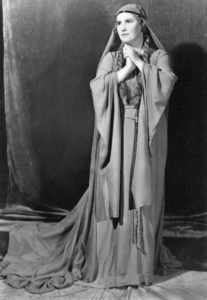 [Kirsten Flagstad as Isolde.]
[Kirsten Flagstad as Isolde.]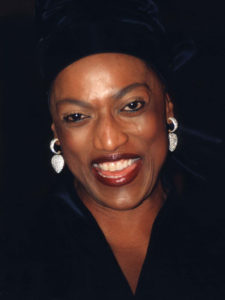 [Jessye Norman]
[Jessye Norman]
Also a prolific thinker and writer, Wagner didn’t just impact music. Once his name and ideas became known, he acquired many devout and fanatical followers all across Europe and elsewhere. Painters and poets who had never even heard Wagner’s music were calling themselves Wagnerians. He seemed to change how artists thought about their art and their audiences.
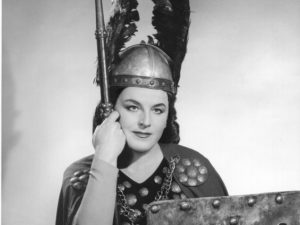 [Birgit Nilsson as Brünnhilde.]
[Birgit Nilsson as Brünnhilde.]
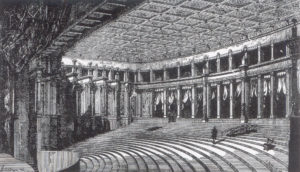 [1875 engraving of the Bayreuth Festspielhaus]
[1875 engraving of the Bayreuth Festspielhaus]
You could say that in the mid- to late-19th century there were two kinds of artists: Those who wanted to be like Wagner, and those who deliberately tried to avoid being like Wagner. Karl Marx even complained once that he couldn’t go anywhere without people talking about Wagner. He is more than just a name, he is an adjective: Wagner left us in a Wagnerian world.
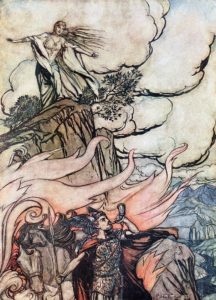 [Arthur Rackham illustrations for Wagner’s Ring.]
[Arthur Rackham illustrations for Wagner’s Ring.]
Wagner is best known for a dozen or so music dramas such as Tannhauser, Parsifal, and his massive four-part series of operas Der Ring Des Nibelungen.He quite literally revolutionized music with his 1859 tragedy Tristan und Isolde, in which he turned traditional harmony on its head and lead the musical world down a path toward the radical innovations of the early twentieth century. Composers as diverse as Bruckner, Mahler, Debussy, Strauss, and Schoenberg all revered Wagner and learned from him in their own ways.
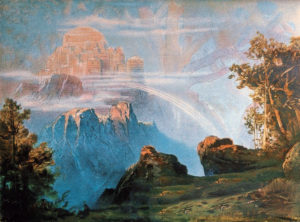
[Max Bruckner (1836-1918), The Walhalla, backdrop for the scenic design of Wagner’s The Ring of the Nibelungs, Bayreuth]
If you are interested in learning more about Wagner’s political beliefs and actions, I may suggest exploring Stephen Fry’s 2010 documentary Wagner & Me, as well as the 2020 book Wagnerism: Art & Politics In The Shadow Of Music by Alex Ross. These two works will shed far more light on Wagner the man than I am willing or able to do here. Today we shall keep it simple and celebrate Der Meister’s extraordinary gift of music.
DJbob Cause and Effect September 10th, 2022
Posted In: Blogging, Music, Music Shows
River City Limits presents:
9-3-22 Jay Smack Host

smack River City Limits September 6th, 2022
Posted In: Blogging, Local, Music, Music Shows

